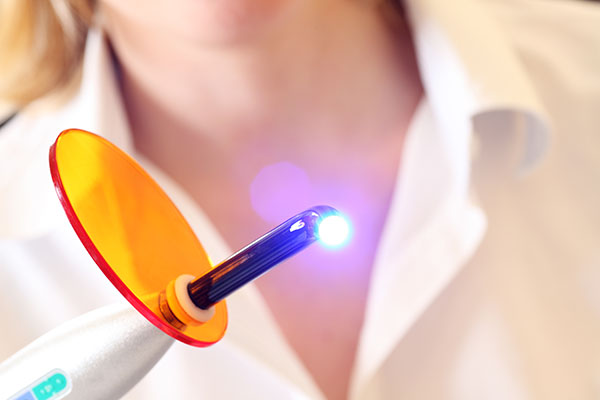3 FAQs About Laser Dentist

You have heard that there is a laser dentist near you, but you are not quite sure what that means. Get the answers to some frequently asked questions, so you will understand laser dentistry. Then you will know if you are a good fit for a laser dentistry procedure.
Laser dentistry FAQs
People have lots of questions about laser dentistry. Find out how it works, if it hurts and what procedures are available with laser dentistry.
1. What is laser dentistry?
Dentists use lasers to remove or manipulate gum tissue and cut through teeth and can do more with laser dentistry overall. A laser dentist relies on lasers instead of scalpels and drills. The lasers do much of what scalpels and drills can do without all the side effects. Dentists like lasers because the beams of light are easy to control. This allows them to treat the area while avoiding healthy tissue.
2. Does laser dentistry hurt?
Pain at the dentist office is a serious concern for many people. The idea of scalpels and drills makes many people cringe. That is one reason so many people now choose laser dentistry. This is often referred to as painless dentistry and it alleviates dental anxiety.
Since dentists do not use scalpels and drills, laser dentistry is less invasive than traditional dentistry. Also, lasers numb teeth and tissue, making most procedures painless. It is so painless that most procedures do not require any anesthesia. When anesthesia is needed, it is much less than what is required for traditional procedures.
The laser also immediately cauterizes tissue. This reduces bleeding and speeds up the recovery time. In fact, many people report that the recovery from a laser dentistry procedure is also painless. People do not go home with stitches when lasers are used. They also do not experience the uncomfortable side effects that come with drills and scalpels.
3. What procedures can a laser dentist do?
Dentists use lasers for a large number of procedures. Many use lasers for fillings. Lasers quickly remove the decay and prepare the tooth. Then dentists add the filling material, and the patient goes home without any anesthesia-related numbness. Also, because lasers provide more control than scalpels and drills do, dentists can keep the healthy tooth structure in place when removing decay.
Lasers are also used for crowns, root canals and periodontal treatments. These beams of light can even improve a gummy smile. Dentists simply manipulate the gum tissue to improve the appearance of the gumline.
Also, dentists often use lasers for teeth whitening procedures. The lasers accelerate the whitening process, so people do not have to spend nearly as much time in the dentist’s office. When lasers are used, the entire teeth whitening process can be finished in half an hour.
Do you want to visit a laser dentist?
It is no wonder that so many people prefer laser dentistry over traditional dentistry. Lasers replace scalpels and drills and provide a painless experience at the dentist. You can also get various procedures done with a laser, such as fillings, crowns, root canals and teeth whitening. Reach out to a dentist to find out more about laser treatments.
Request an appointment here: https://www.dentistofvisalia.com or call Visalia Care Dental at (559) 975-1213 for an appointment in our Visalia office.
Check out what others are saying about our services on Yelp: Read our Yelp reviews.
Related Posts
Dental veneers are an investment. Getting these restorations is a significant decision. The permanence of having these shells on your teeth needs commitment. Knowing how to make these restorations last longer can help motivate you to care for them even more. Here are some advice and tips on how to make your dental veneers last…
A great smile can improve your confidence, but a poor one can have the opposite effect. Dental veneers may be the answer if you are struggling with the quality of your smile. Read on to learn how they can transform not only your smile but your confidence as well.People avoid smiling altogether when they do…
Dental veneers are versatile restorations. Your dentist can improve the health and appearance of your teeth by applying these custom-fit shells. Talking to your dentist about the procedure can motivate you to set your treatment schedule. Here are the pros and cons of getting your dental veneers.Dental veneers can be a good choice for dental…
General dentists often serve as the primary dental provider to patients of all ages. These dentists offer a wide range of preventive and restorative services, from dental cleanings to fillings and more. Whether preventing common problems or providing advanced restorative procedures, the goal remains the same — supporting healthy teeth, gums, and smiles at every…
